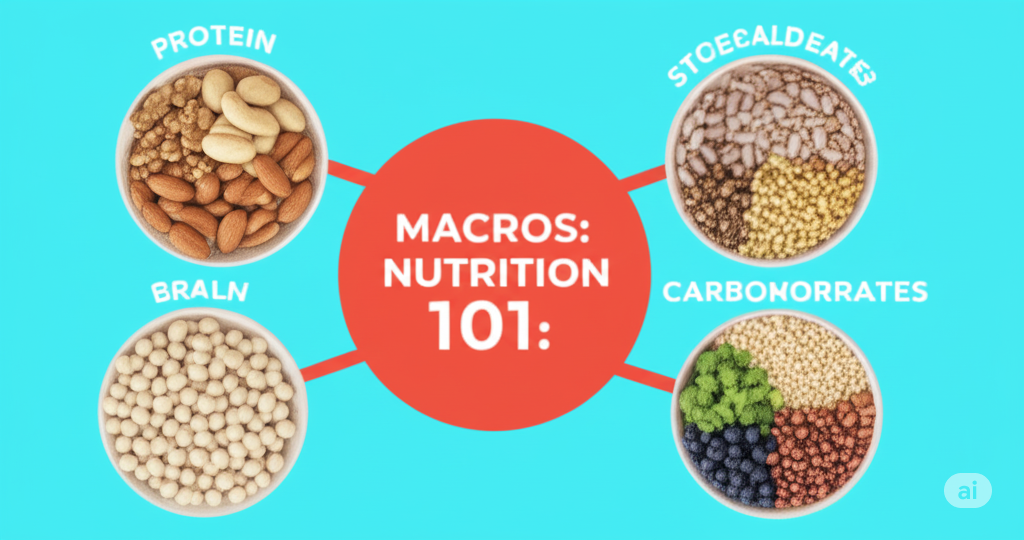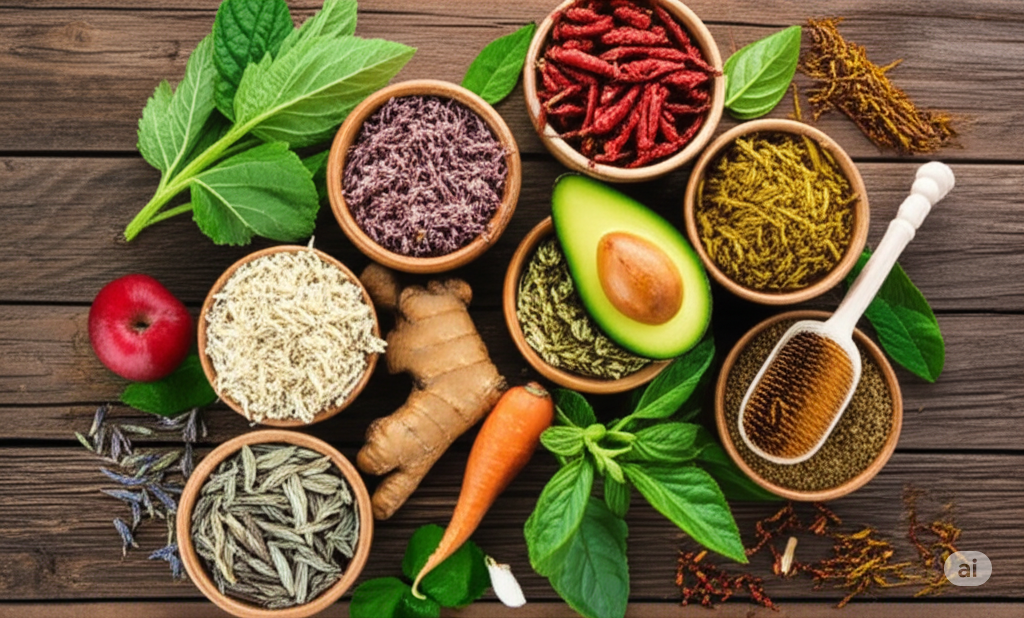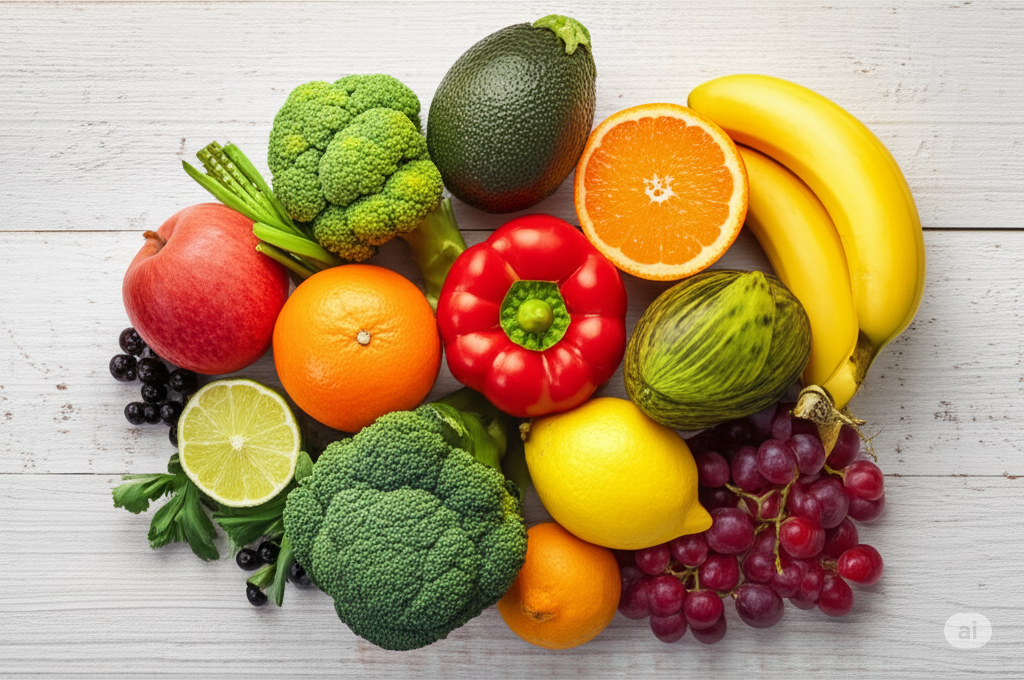In the world of nutrition, you’ll often hear the term “macronutrients.” These are the three primary nutrients that our bodies need in large amounts to function properly: proteins, carbohydrates, and fats. Understanding the role of each macronutrient is fundamental for making informed dietary choices and achieving your health and fitness goals. Let’s break down each one:
Proteins: The Building Blocks
Think of proteins as the workhorses and building blocks of your body. They are essential for:
- Building and repairing tissues: This includes muscles, organs, skin, hair, and nails.
- Producing enzymes and hormones: These substances regulate various bodily processes.
- Supporting the immune system: Antibodies, which fight off infections, are made of protein.
- Transporting nutrients: Proteins help carry oxygen and other important molecules throughout the body.
Proteins are made up of smaller units called amino acids. Some amino acids are produced by the body (non-essential), while others must be obtained through food (essential).
Good Sources of Protein:
- Animal Sources: Lean meats (chicken, fish, beef), eggs, dairy products (yogurt, milk, cheese).
- Plant Sources: Legumes (beans, lentils, chickpeas), tofu, tempeh, edamame, nuts, seeds, quinoa.
Carbohydrates: The Body’s Primary Fuel
Carbohydrates are your body’s main source of energy. When you eat carbs, they are broken down into glucose (sugar), which your cells use for fuel. Carbohydrates are vital for:
- Providing energy for daily activities: From walking to exercising, carbs power your movements.
- Fueling the brain and nervous system: Glucose is the primary energy source for these crucial systems.
- Providing fiber: Many carbohydrate-rich foods are also excellent sources of fiber, which aids digestion, helps regulate blood sugar levels, and promotes feelings of fullness.
Not all carbohydrates are created equal. It’s important to focus on complex carbohydrates over simple, refined carbs.
Types of Carbohydrates:
- Simple Carbohydrates (Sugars): Found in fruits, table sugar, sugary drinks, and processed foods. These are quickly digested and can cause rapid spikes in blood sugar.
- Complex Carbohydrates (Starches and Fiber): Found in whole grains (oats, brown rice, whole wheat), vegetables, and legumes. These are digested more slowly, providing a sustained release of energy and important nutrients like fiber.
Good Sources of Carbohydrates:
- Whole Grains: Oats, brown rice, quinoa, whole wheat bread and pasta.
- Fruits: Berries, apples, bananas, oranges, etc.
- Vegetables: Leafy greens, broccoli, carrots, sweet potatoes, etc.
- Legumes: Beans, lentils, chickpeas.
Fats: Essential for Overall Health
Fats often get a bad rap, but they are crucial for many bodily functions. They are a concentrated source of energy and play a vital role in:
- Nutrient absorption: Fats help your body absorb fat-soluble vitamins (A, D, E, K).
- Cell structure: Fats are a key component of cell membranes.
- Hormone production: Fats are necessary for the production of certain hormones.
- Insulation and protection: Fat helps insulate your body and protect your organs.
- Satiety: Fats can help you feel fuller for longer.
Similar to carbohydrates, there are different types of fats, and some are healthier than others.
Types of Fats:
- Saturated Fats: Found primarily in animal products (red meat, butter, cheese) and some plant oils (coconut oil, palm oil). Limit intake as high amounts can raise LDL (“bad”) cholesterol levels.
- Unsaturated Fats: Considered healthy fats that can benefit heart health.
- Monounsaturated Fats: Found in avocados, nuts, olive oil.
- Polyunsaturated Fats: Include omega-3 and omega-6 fatty acids, found in fatty fish (salmon, mackerel), flaxseeds, chia seeds, and walnuts. These are essential fats that the body cannot produce on its own.
- Trans Fats: Often found in processed foods and fried items made with partially hydrogenated oils. These are considered unhealthy and should be avoided.
Good Sources of Healthy Fats:
- Avocados
- Nuts and Seeds
- Olive Oil
- Fatty Fish (Salmon, Mackerel, Sardines)
- Flaxseeds and Chia Seeds
Finding Your Balance
Understanding the fundamental roles of proteins, carbohydrates, and fats is the first step towards building a healthy and balanced diet. The ideal ratio of these macronutrients can vary based on individual needs, activity levels, and health goals. However, a well-rounded approach that includes adequate amounts of each is essential for overall health and well-being. Pay attention to the types and sources of your macronutrients to fuel your body effectively and support a healthy lifestyle.













Leave a Reply